It makes sense that you’re considering opening a smoothie and juice bar franchise…
The juice and smoothie bar industry is thriving. Estimated to be worth $2 billion USD in the United States alone, this points to the growing trend of consumers switching to a more healthy lifestyle. Not only is the United States seeing an upward trend of both independently-owned and smoothie and juice bar franchises, but the International industry is also substantial at an estimated value of $9 billion.
Now is a prime time to start a juice and smoothie bar. Consider the recent global pandemic of early 2020, and what that means for how people are beginning to value wellness-based services and products to a higher degree. It feels accurate to say that the demand for health-supporting smoothies, juices, and food will only continue to grow in the foreseeable future. Read on to learn about the difference between franchising and individual owned smoothie and juice bar franchises.
A smoothie and juice bar franchise is a business model that is operating under a brand’s license to undertake its business.
A franchiser is the brand that owns the intellectual property, creates policies and procedures, and has autonomy over product and marketing strategy.
A franchisee buys the rights to sell its services and branded products based on the unique agreement of each brand. Franchisees must comply with obligations for business operations, as well as ongoing fees, additional to an initial franchise buy-in fee.
This is contrasted to the independently owned business model, where you essentially own all rights to your business, and therefore have complete autonomy over operations and the growth of your business, without paying any fees to an outside party (beyond the operating costs of your business, of course).
If you’re on the fence about whether to buy into a juice and smoothie bar franchise or start your own from scratch, we’ve created this guide for you to explore the most popular franchises you’ll know, as well as pros and cons and our final advice towards the end of the article.
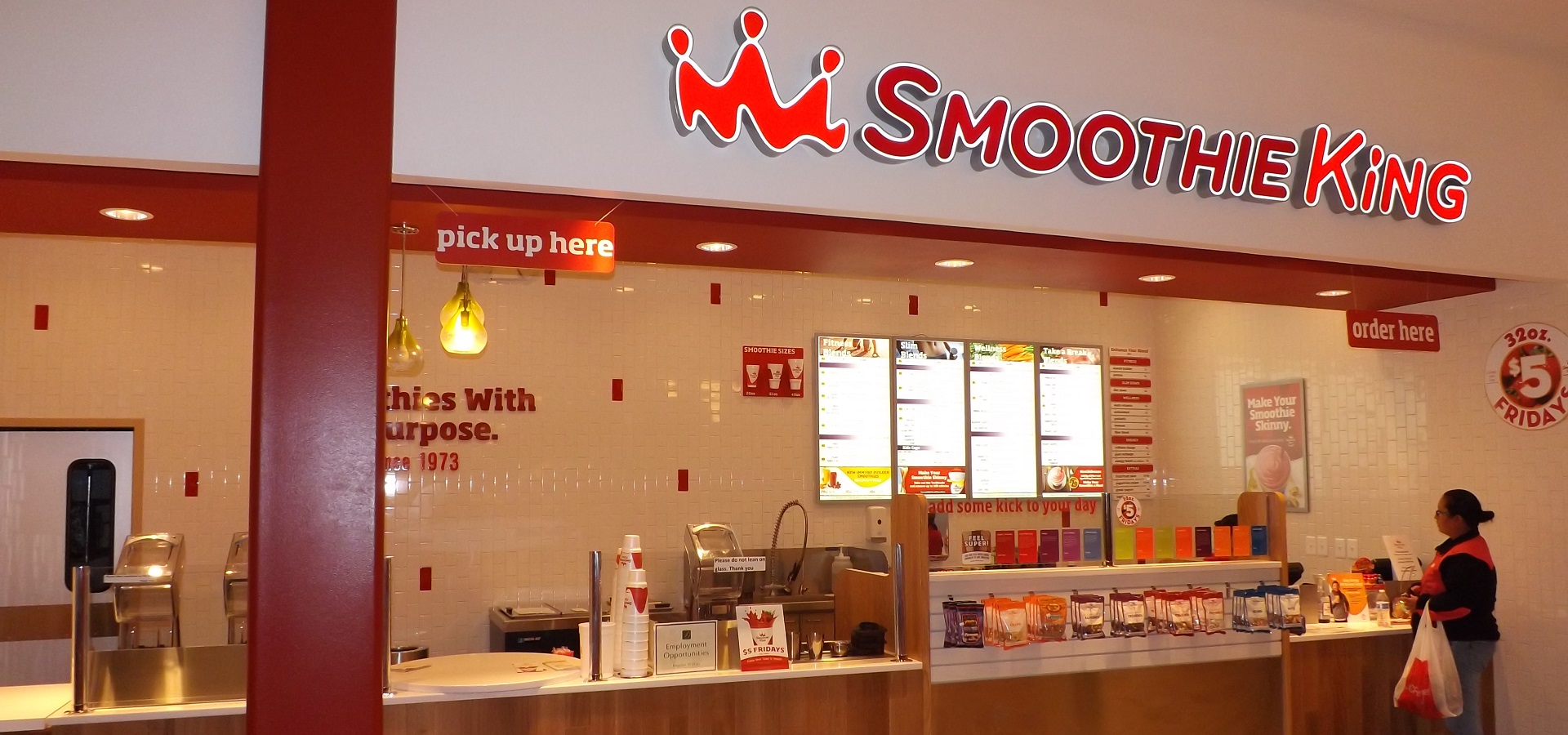
Founded: 1973 by Steve & Cindy Kuhnau in Louisiana, United States.
Franchising since: 1989.
Headquarters: Dallas, Texas, United States.
Revenue: Estimated at $296.5 million USD.
Locations: Approx. 1,075 stores predominantly in the United States, though also in South Korea, Singapore, and the Cayman Islands.
Products: Smoothies & snacks (nuts, chips, muffins, protein bars, cookies & more).
Franchise fee: Up to $30,000 USD.
Ongoing fees:
History & Company Info
In the late 2010s, Smoothie King switched to focusing on whole and unmodified ingredients. This was largely a response to receiving a ‘dis-honor Award’ in 2013 from the Center for Science in the Public Interest for its Peanut Power Plus Grape Smoothie containing unhealthy ingredients and more than 3 times the amount of calories of a general meal.
Early 2019 saw Smoothie King also introduce a ‘Clean Blends Initiative’ with more focus on adding whole fruits and vegetables, moving away from refined and added sugars and ingredients. In 2012, Wan Kim, a Smoothie King franchisee of 10 years in South Korea, bought the entire company from the founders and remains the CEO today.
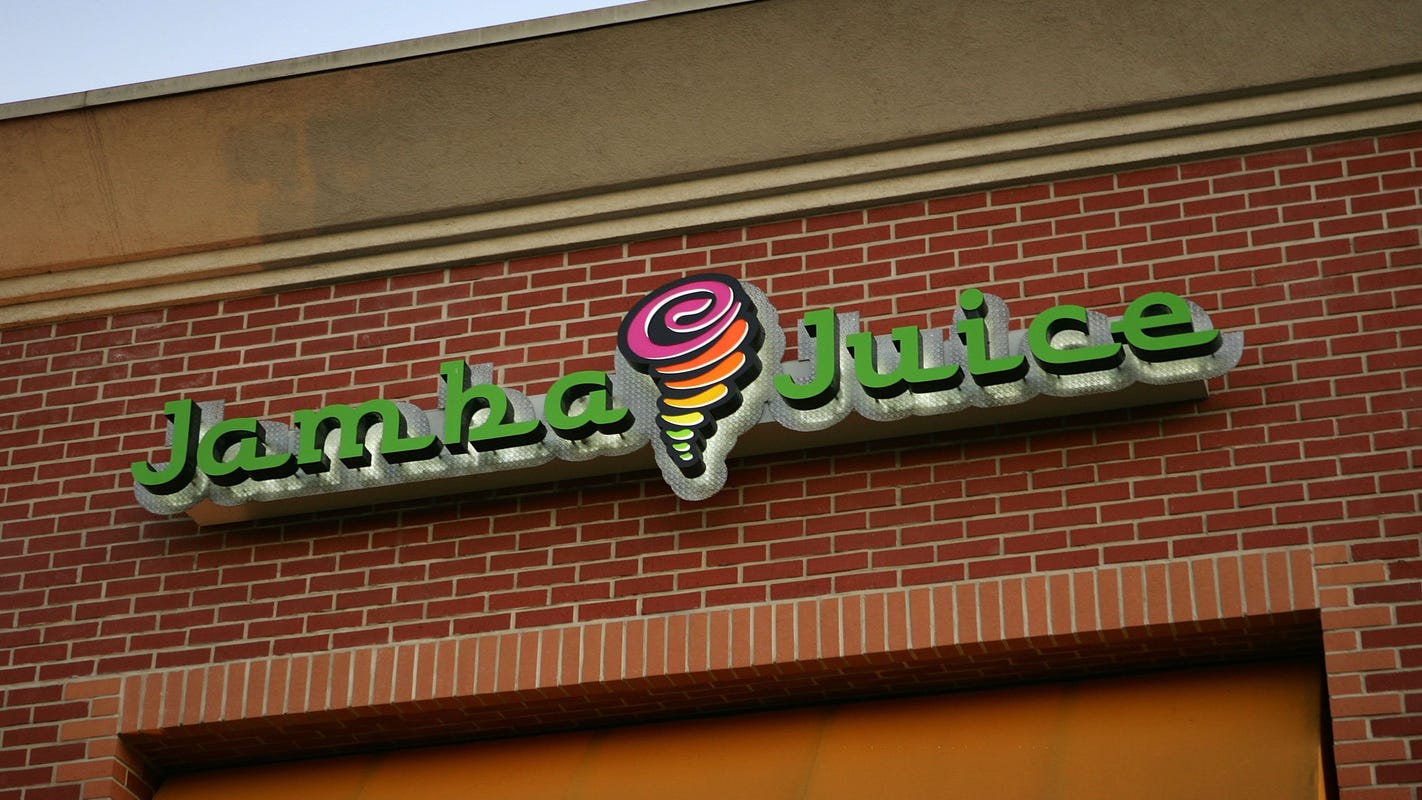
Founded: 1990 by Kirk Perron in San Luis Obispo, California, United States.
Franchising since: 1992.
Headquarters: Atlanta, Georgia, United States.
Revenue: Estimated at $78.3 million USD.
Locations: Approx. 870 stores in the United States, Taiwan, South Korea, Philippines, Thailand & Indonesia.
Products: Juice, smoothies, bowls, sandwiches, & snacks.
Franchise fee: $25,000 USD.
Ongoing fees:
History & Company Info
The franchise business began under the name Juice Club until its name change in 1995 to Jamba Juice. 2009 saw Jamba Juice offering more food items on the menu.
Late 2018 it was acquired by the company Focus Brands. In mid-2019, as an attempt to expand its offerings, Jamba dropped the word ‘juice ‘ from the previous title ‘Jamba Juice.’

Founded: 1997 by Eric & Delora Jenrich & David Walker in Tallahassee, Florida (an initial store concept was founded in 1993).
Franchising since: 1997.
Headquarters: Atlanta, Georgia, United States.
Revenue: Estimated at $50.7 million USD.
Locations: Approx. 830 stores found in 45 states across the United States.
Products: Smoothies, bowls, wraps, sandwiches, breakfast foods, & snacks.
Franchise fee: $25,000 USD.
Ongoing fees:
History & Company Info
With the concept beginning as a smoothie shop operating on a small-scale basis in Florida in 1993, it didn’t take long to turn to the franchise model by 1997 under the brand ‘Tropical Smoothie Cafe.’
Now, it’s estimated that the rate of current growth is that every 3-4 days, a new Tropical Smoothie Cafe store opens. The company projects 2,000 more store openings across the United States by the year 2024.
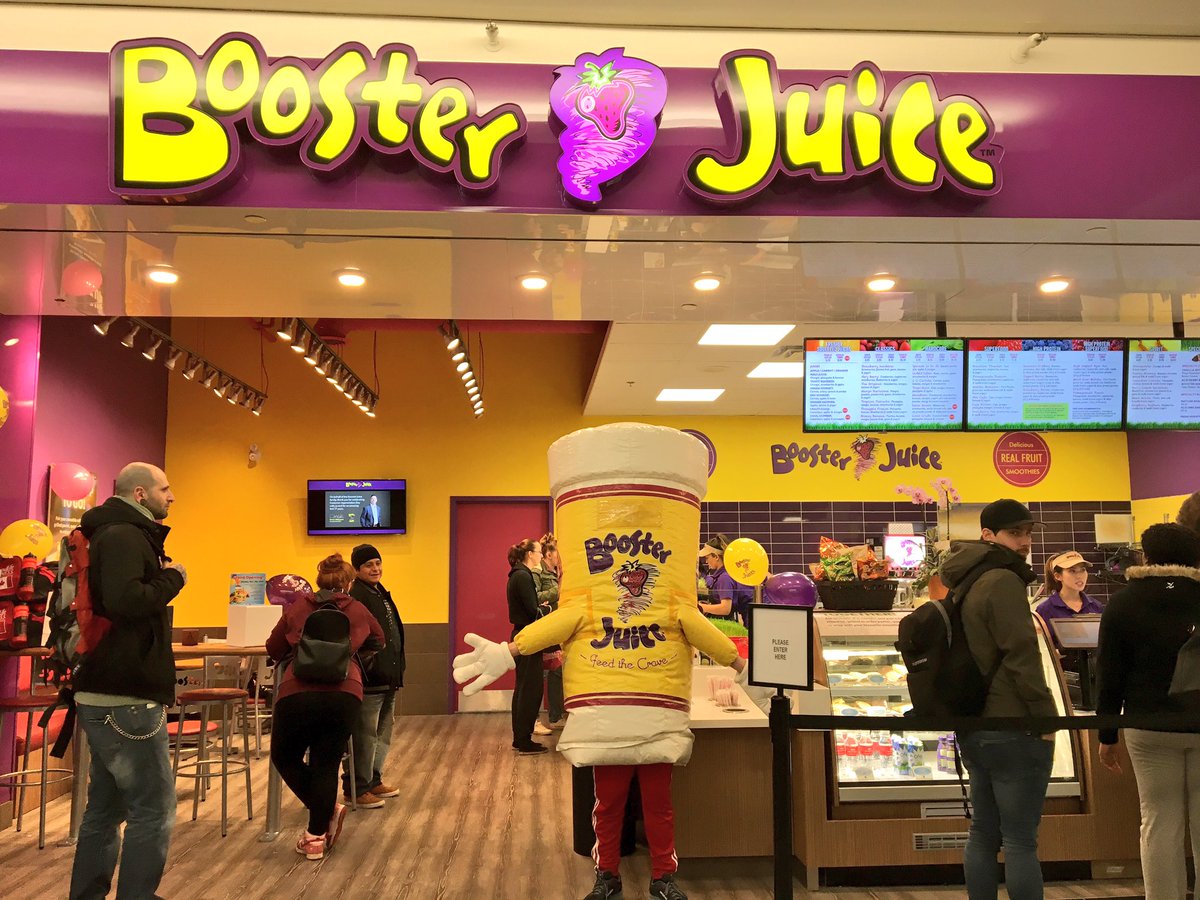
Founded: 1999 by Dale Wishewan in Sherwood Park, Alberta, Canada.
Franchising since: 2000.
Headquarters: Edmonton, Alberta, Canada.
Revenue: Estimated at $8.3 million USD.
Locations: More than 400 in Canada, the United States, Mexico, Dubai, India & Guatemala.
Products: Smoothies, juices, shots, bowls, sandwiches, wraps, & baked pastries.
Franchise fee: $30,000 USD.
Ongoing fees:
History & Company Info
After offering smoothies and juices to neighbors and friends, Dale was convinced that Canada’s juice bar market needed more. The first location opened in 1999 and set a Canadian franchise record by opening 50 stores in the first 2 years of business. As of 2020, Dale is still the present and CEO of Booster Juice.
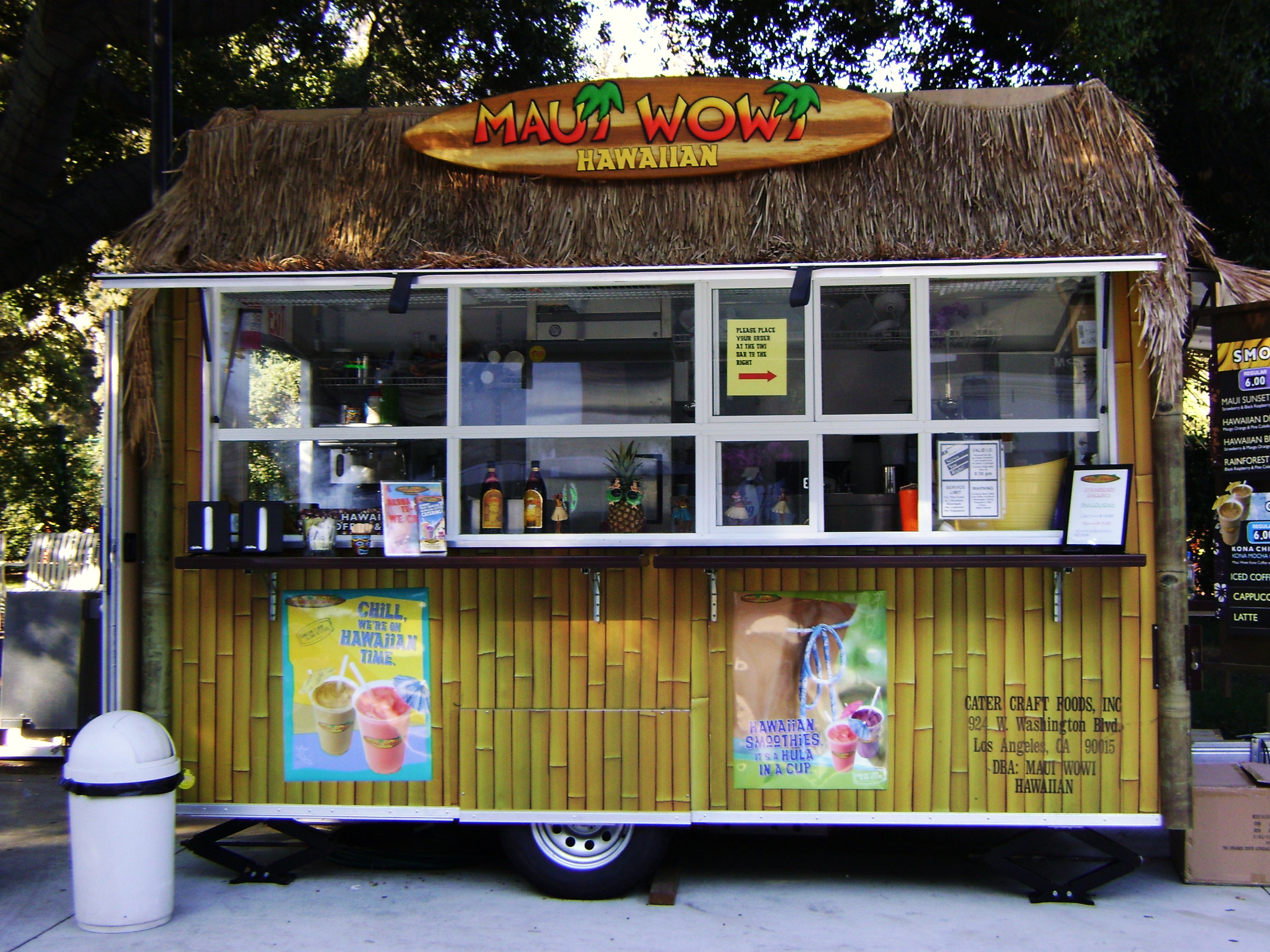
Founded: 1983 by Jill & Jeff Summerhays in Salt Lake City, Utah, United States.
Franchising since: 1993.
Headquarters: Scottsdale, Arizona, United States.
Revenue: Estimated $13.1 million USD.
Locations: More than 150 in the United States, Mexico, United Arab Emirates & Saudi Arabia.
Products: Tropical-themed smoothies & Hawaiian gourmet coffee.
Franchise fee: $30,000 USD.
Ongoing fees:
History & Company Info
What started off as a smoothie cart that opened after being inspired by a couple’s trip to Hawaii is now a popular small-scale smoothie franchise. The Kahala Brand’s company purchased Maui Wowi in 2015, which was already franchising with close to 200 cart/kiosk style locations by that time.
The franchisee number has both raised and declined over the years. The Kahala Brand actually also owns many other franchises, with the well known Pinkberry, Planet Smoothie, and Surf City Squeeze being in the juice and smoothie bar category.
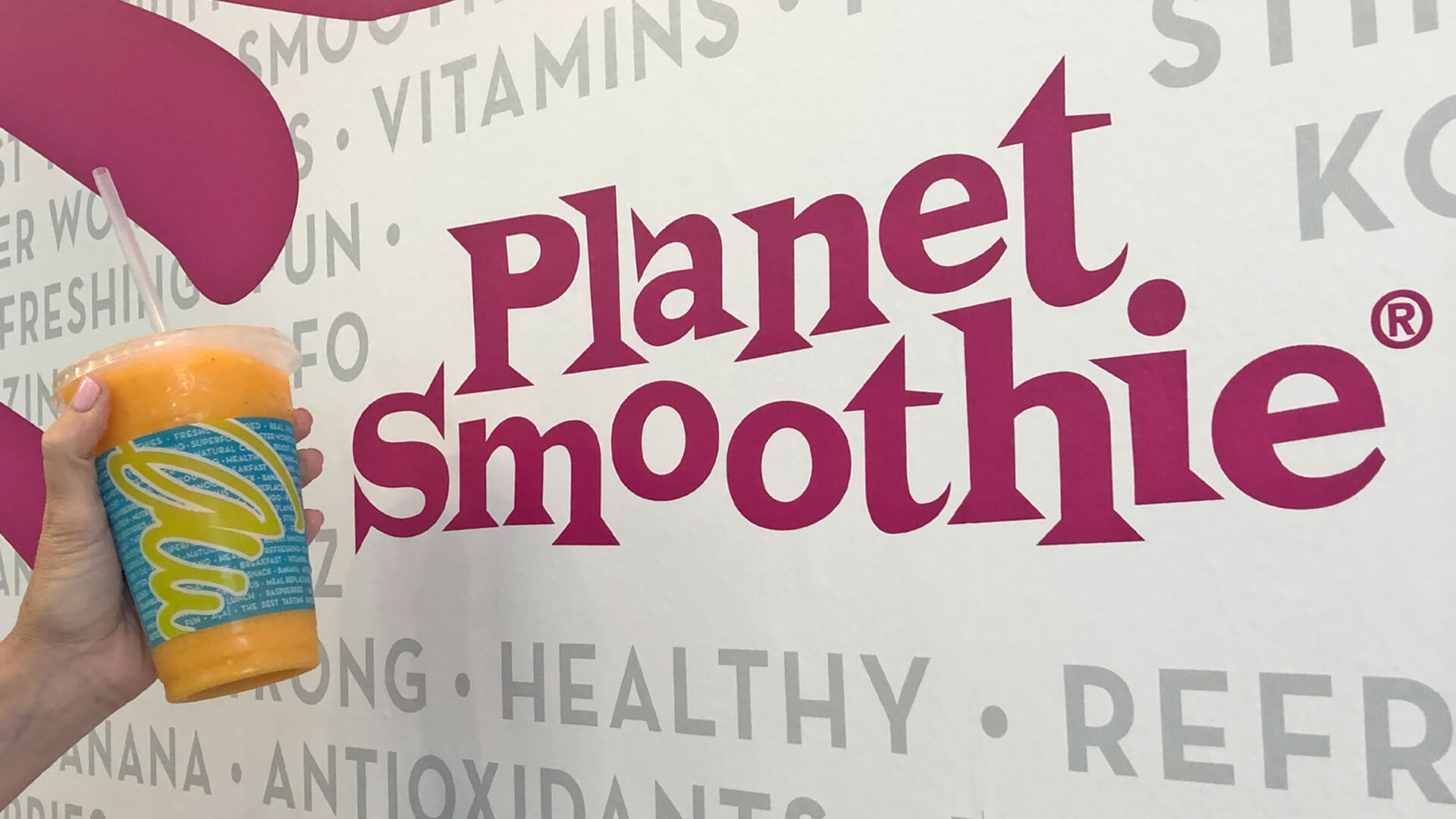
Founded: 1995 by Martin Sprock in Atlanta, Georgia, United States.
Franchising since: 1998
Headquarters: Scottsdale, Arizona, United States.
Revenue: Estimated $17.8 million USD.
Locations: More than 120 stores across 20 states in the United States.
Products: Smoothies with added fruit, whole foods, & supplements.
Franchise fee: Up to $25,000 USD.
Ongoing fees:
History & Company Info
In 2011, Tasti D-Lite LLC, a frozen dessert chain, acquired Planet Smoothie. In 2015, Kahala Brands went on to acquire Tasti D-Lite, and therefore, Planet Smoothie as well. This smoothie store makes up 29 restaurant franchise brands that Kalaha Brands now owns across the United States.
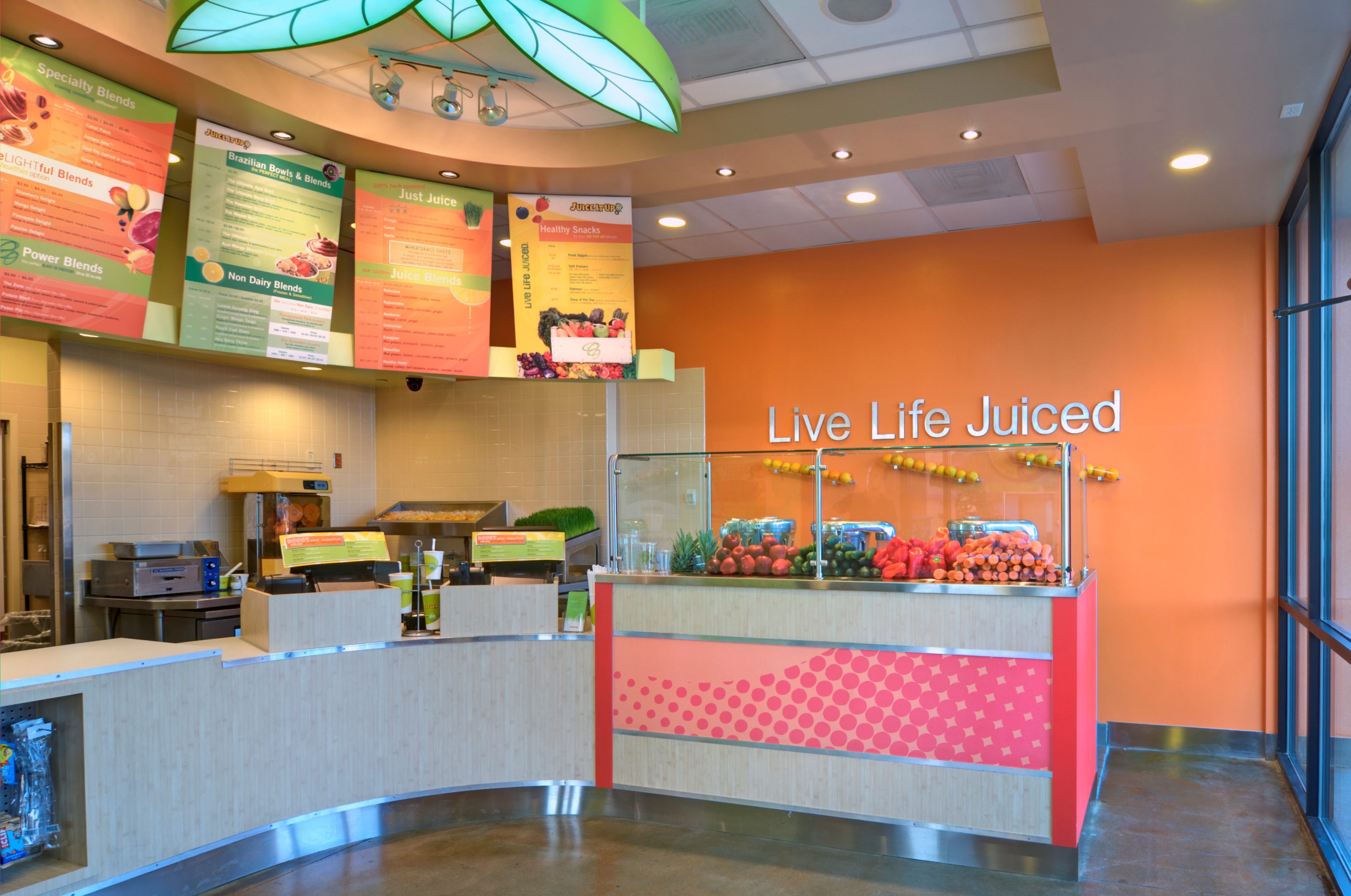
Founded: 1995 by Larry Sidoti & Dan York in Brea, California.
Franchising since: 1998.
Headquarters: Irvine, California, United States.
Revenue: Estimated $21.4 million USD.
Locations: Approx. 85 stores across 4 states in the United States.
Products: Smoothies, juices, bowls, & snacks.
Franchise fee: $25,000 USD.
Ongoing fees:
History & Company Info
Over its years of operating, Juice It Up has established itself as one of the more serious wellness-focused franchise juice bar brands. The company was purchased by SJB Brands, a private investment group in 2018. 2008 saw the highest number of open franchise locations at 150, though has since dropped to around 85.
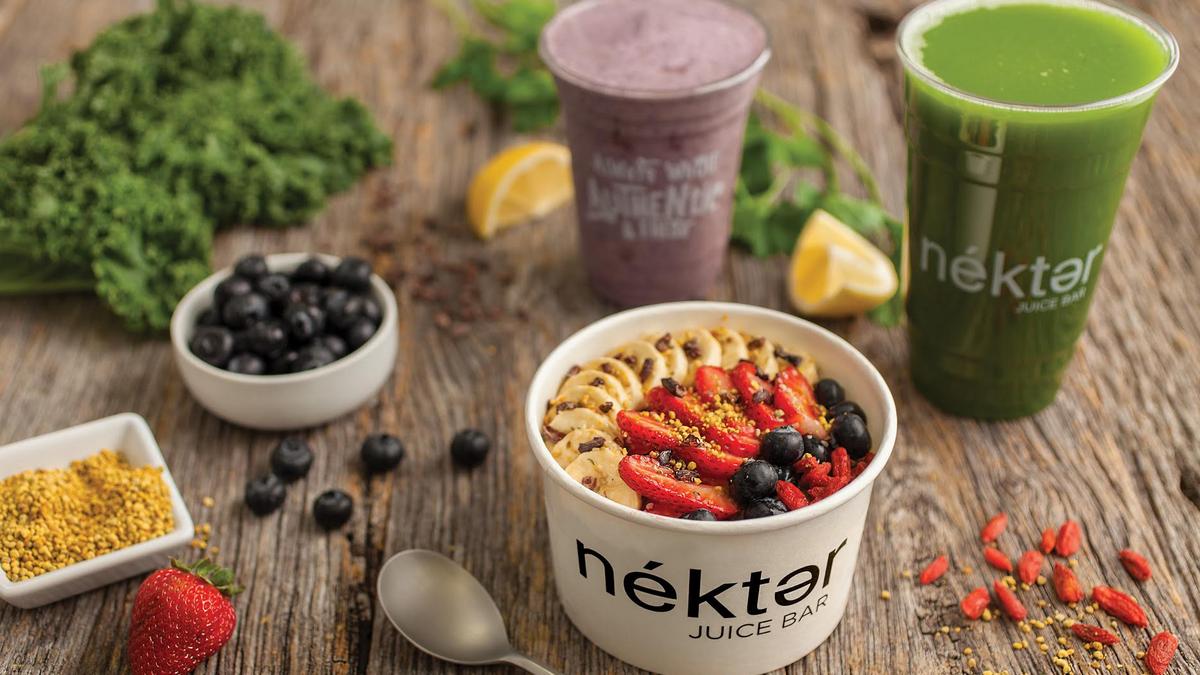
Founded: 2010 by Alexis and Steve Schulze in Costa Mesa, California, United States.
Franchising since: 2012
Headquarters: Santa Ana, California, United States.
Revenue: Estimated $74.1 million USD.
Locations: Approx. 165 across 17 states in the United States.
Products: Plant-based juices, smoothies, bowls, vegan ice cream, snacks, & grab-and-go drinks.
Franchise fee: Up to $35,000 USD.
Ongoing fees:
Juice Bar History & Company Info
Created as an alternative to other ‘healthy’ juice and smoothie bars that were lacking in clean and high-quality options, Alexis and Steve Schulze created a juice bar concept that would be known for more high-end health products.
Since franchising, approximately 44 of the 165 locations are corporate-owned, and the brand has recently created a mobile app for online ordering, delivery, and loyalty systems.
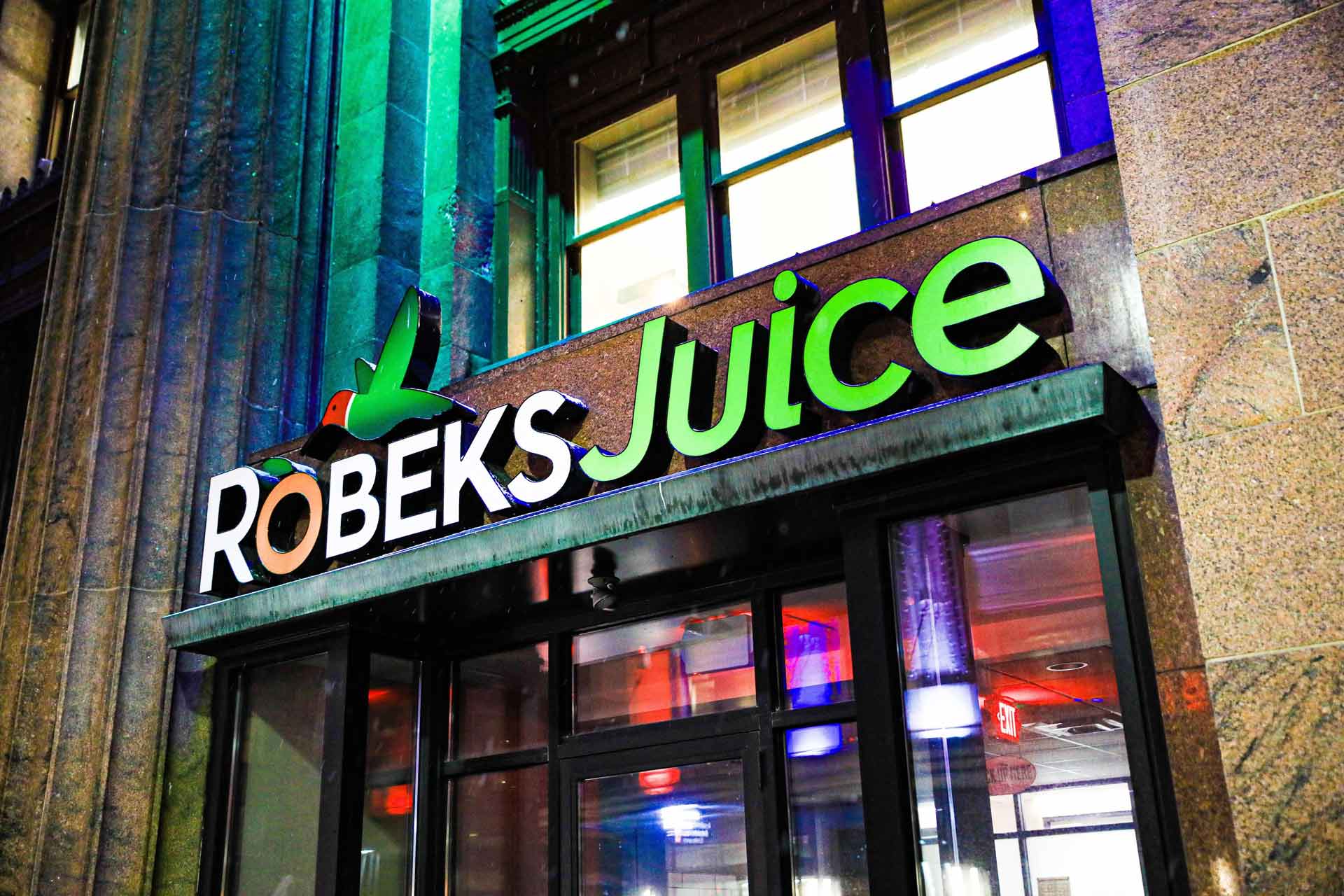
Founded: 1996 by David Robertson in Los Angeles, California, United States.
Franchising since: 2001
Headquarters: Los Angeles, California, United States.
Revenue: Estimated $4.6 million USD.
Locations: Approx. 83 across the United States & 1 store in Guam.
Products: Smoothies, juices, bowls, & wellness shots.
Franchise fee: $25,000 USD.
Ongoing fees:
History & Company Info
The founder of this smoothie and juice bar franchise, David Robertson, was an investment banker. In 2017, their menu upgraded for more health-conscious options and 2018 saw the launch of an online ordering app. Location numbers are growing and it’s projected to be over 100 by the end of 2020.
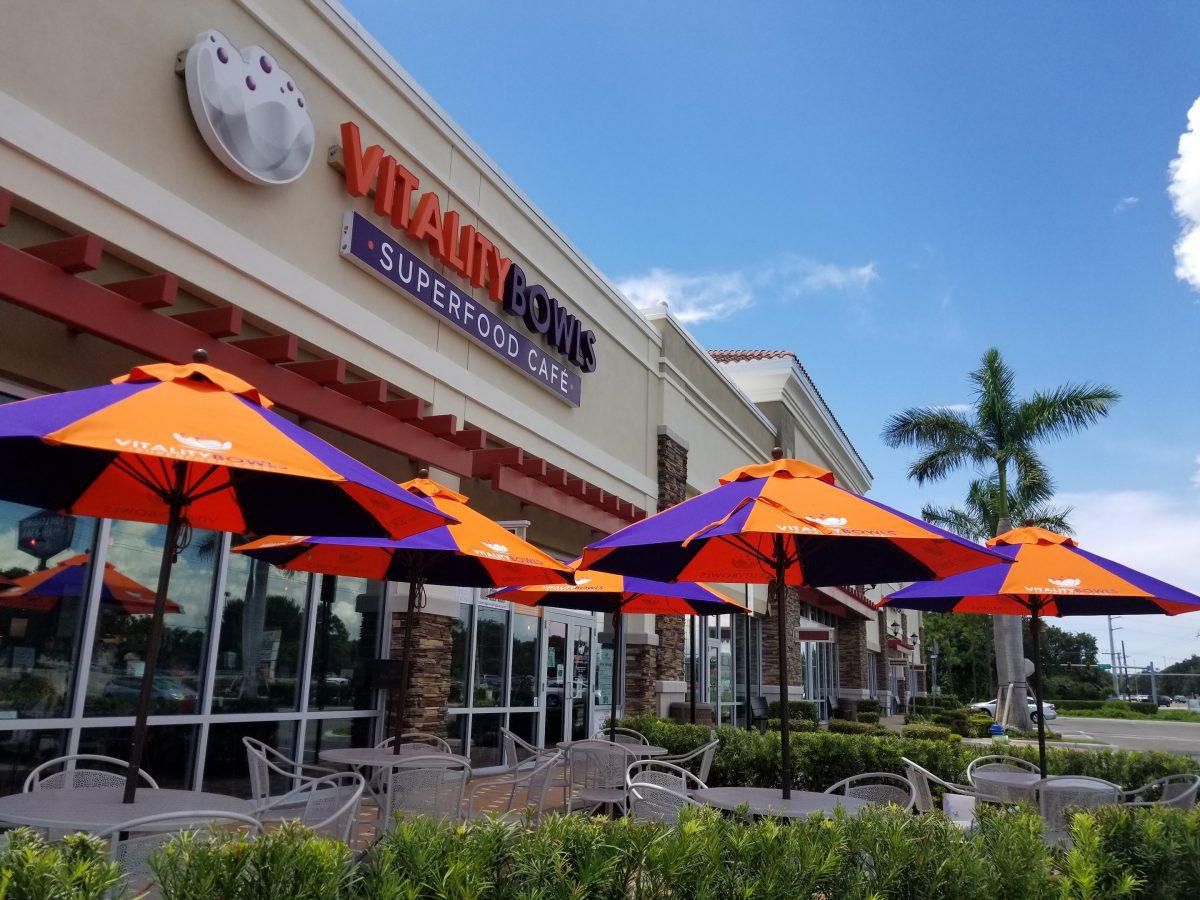
Founded: 2011 by Roy Gilad & Tara Gilad in San Ramon, California, United States.
Franchising since: 2014.
Headquarters: Danville, California, United States.
Revenue: Estimated $23.3 million USD.
Locations: Approx. 62 across 19 states in the United States.
Products: Smoothies, acai bowls, juices, sandwiches, salads, & soup.
Franchise fee: $39,500 USD.
Ongoing fees:
History & Company Info
Vitality Bowls is a smoothie bar franchise born out of the need for Roy and Tara Gilad to source healthy food options for their daughter’s severe allergies. They were inspired to offer a healthy smoothie and juice bar concept for more people to enjoy a healthier way of living.
Since it was opened, it’s estimated that Vitality Bowls has served about 3.5 million açai bowls.
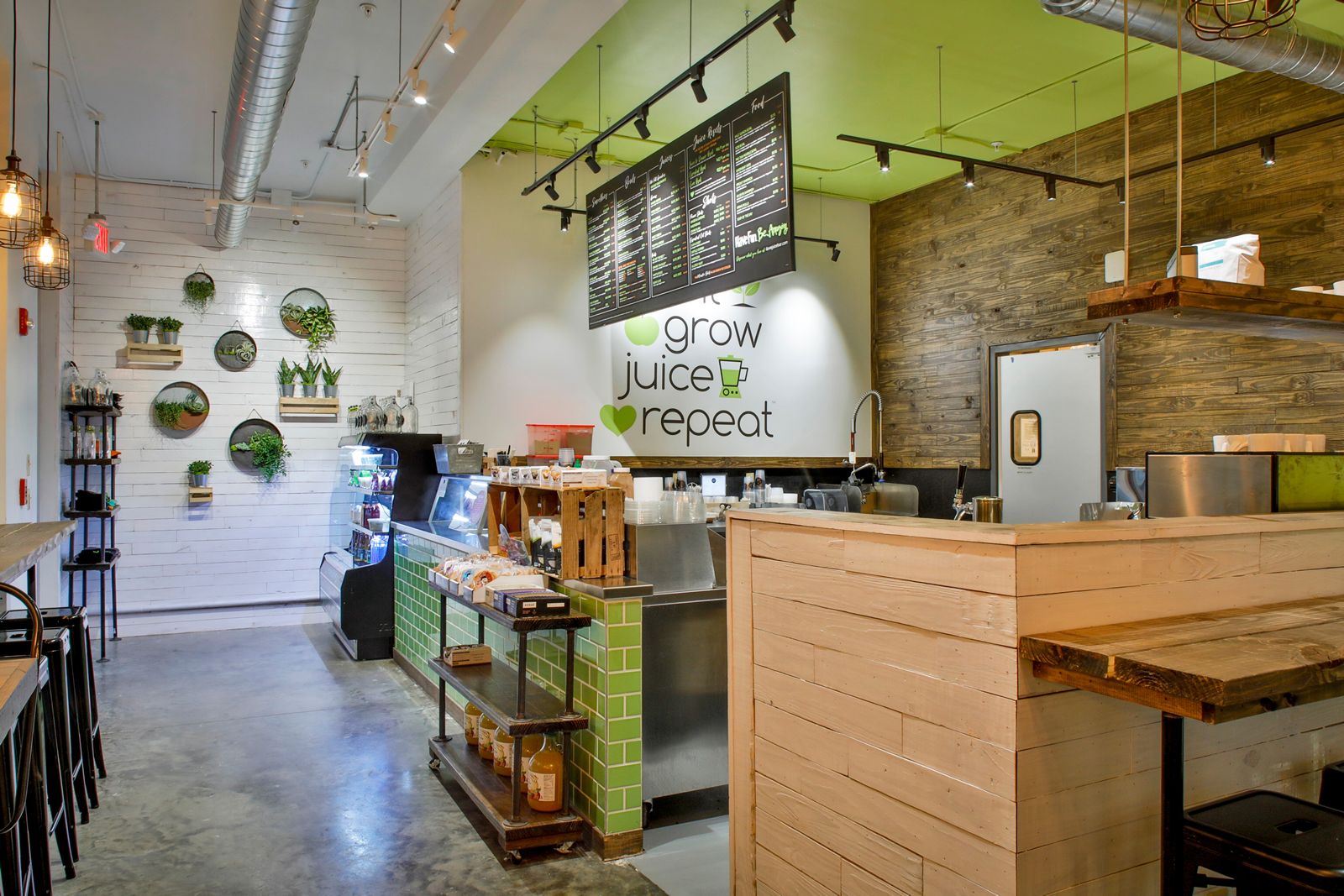
Founded: 2013 by John & Vui Hunt in Brentwood, Tennessee, United States.
Franchising since: 2015.
Headquarters: Nashville, Tennessee, United States.
Revenue: Estimated $6 million USD.
Locations: Approx. 50 stores across 12 states in the United States
Products: Juices, smoothies, bowls, wellness shots, savory lunch menu & snacks.
Franchise fee: $25,000 USD.
Ongoing fees:
History & Company Info
Just one year after opening, the second location opened up and by the second year of operating, the founders decided to branch out to franchising. As well as smoothies, juices, and other wellness drinks, the brand provides food menu items and juice cleanse sets for customers to take away.
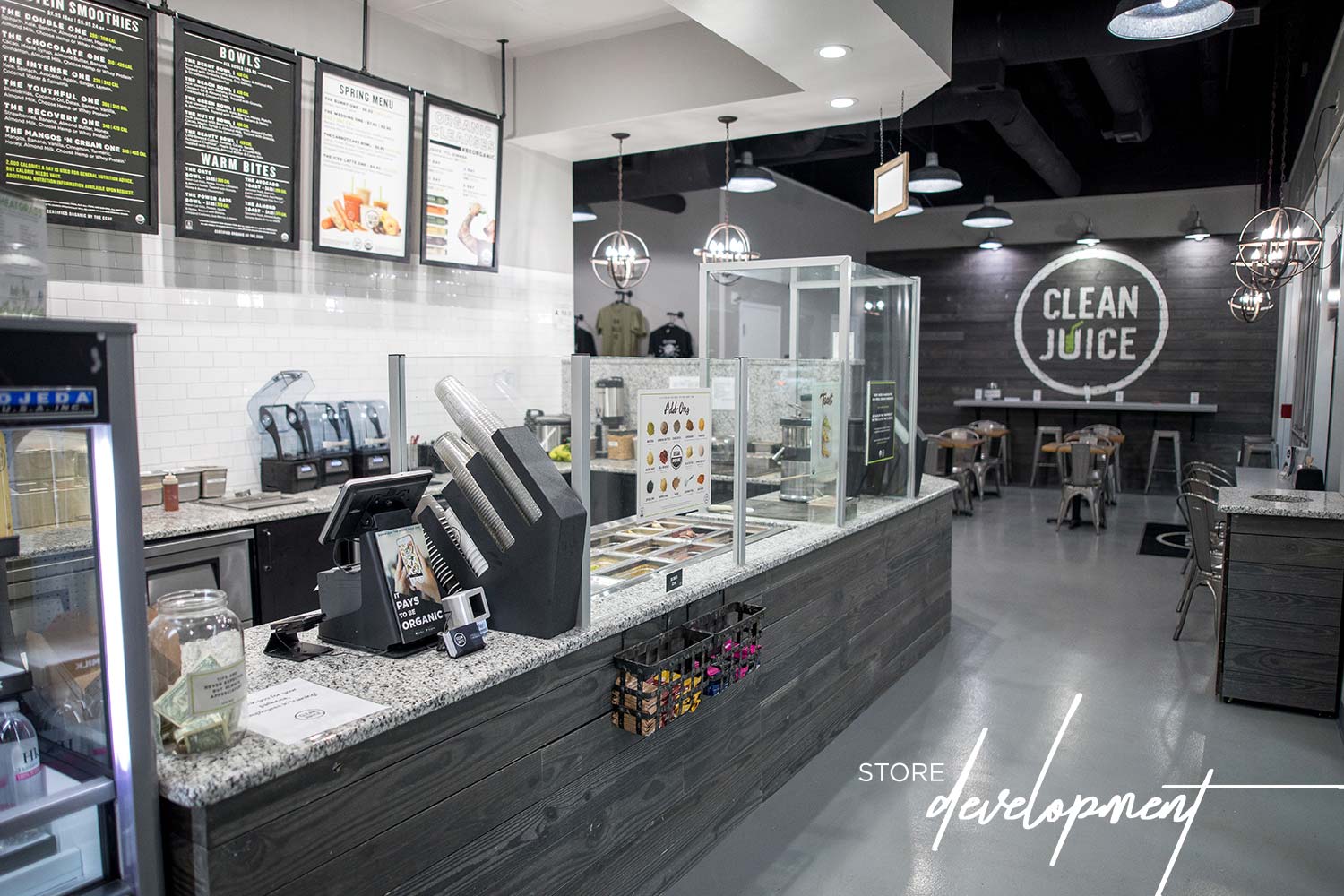
Founded: 2014 by Landon & Kat Eckles in Huntersville, North Carolina, United States.
Franchising since: 2017.
Headquarters: Charlotte, North Carolina, United States.
Revenue: Estimated $4.9 million USD.
Locations: More than 100 stores across 16 states in the United States.
Products: Smoothies, juices, acai bowls, toast, & snacks.
Franchise fee: $42,500 USD.
Ongoing fees:
History & Company Info
Just 3 years after opening, the brand has 5 franchised locations operating and 58 more in development. In 2018, Clean Juice integrated the LevelUp platform in its operations for mobile payments and loyalty rewards programs.
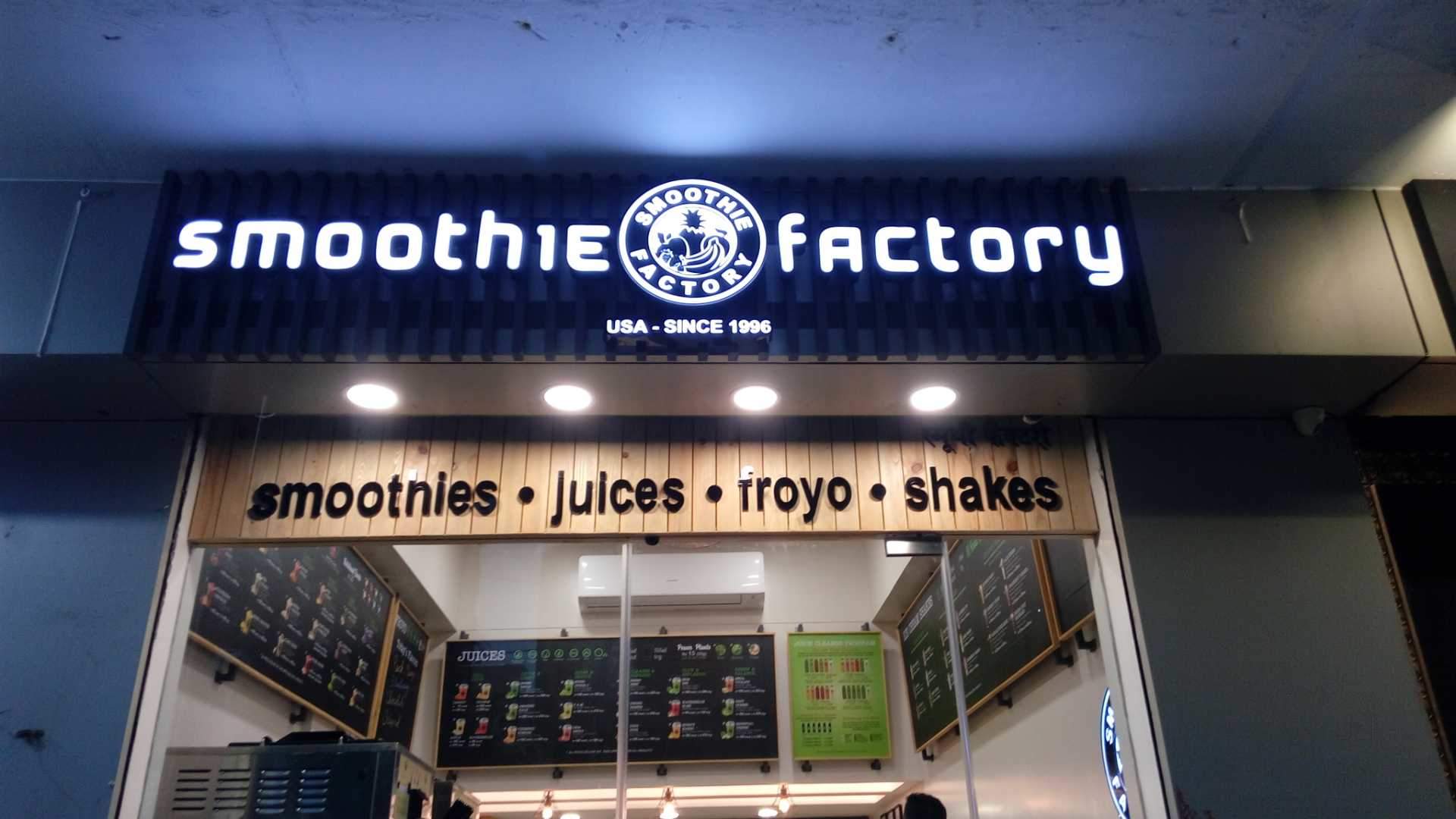
Founded: 1996 by James Villasana in Carrollton, Texas, United States.
Franchising since: 1997.
Headquarters: Dallas, Texas, United States.
Revenue: N/a
Locations: Approx. 33 across the United States.
Products: Smoothies, juices, bowls, & frozen yogurt.
Franchise fee: Up to $30,000 USD.
Ongoing fees:
History & Company Info
The brand was founded by former Olympic athlete James Villasana. It reached its highest franchisee number of 47 in 2012, but has since dropped by approx. 33 in 2020. It currently offers a zero percent royalty fee program for the first year of opening, as stated on the official Smoothie Factory website (conditions apply).
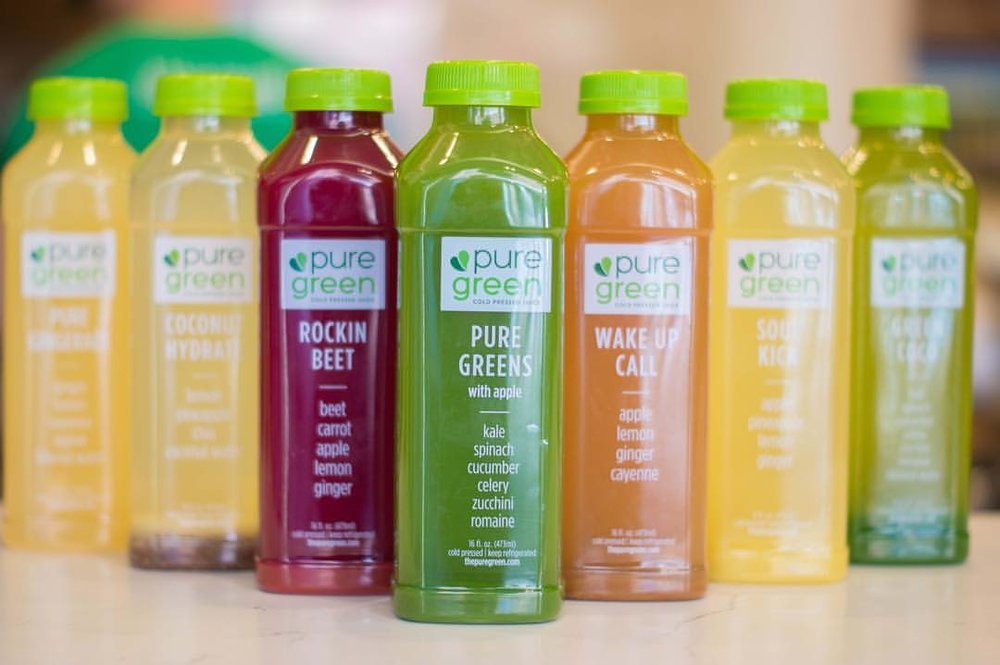
Founded: 2014 by Ross Franklin in New York City, New York, United States.
Franchising since: 2019.
Headquarters: New York City, New York, United States.
Revenue: Estimated $7 million USD.
Locations: Approx. 13 across the United States.
Products: Smoothies, Acai & oatmeal bowls, cold-pressed juice, & wellness shots.
Franchise fee: $30,000 USD.
Ongoing fees:
History & Company Info
The store franchising of Pure Green began only recently in 2019, however, since the company’s launch in 2014, it has been working it’s way up to high-production of wholesale juice distributed across 20 dates in the United States. Currently, the wholesale sector of the company is growing faster than the franchise stores.
Pros:
Cons:
To get a clear idea of what those ongoing fees (percentages explained above) would look like, take this example:
Imagine your juice bar makes 1 million a year, with your net profit at 25%. That means a profit of $250,000.
If the franchise royalty and marketing fees were at an average of 8.5% of gross sales (as with the majority of the franchise fee structure on this list), then that would equal $85,000 that you pay the franchise company.
So to take that fee out of your profits would mean that you are left with $165,000 instead of $250,000.
It might not come as a surprise that we would recommend people who are deciding between taking on a juice bar franchise opportunity and an individual-owned business model to go with the independently-owned option.
Not only will you be better off in terms of the money it costs to create the business, and the potential profits you’ll make, but you’ll also have far more freedom to create and grow the business exactly how you want it, every step of the way.
If you’re serious about opening a juice and smoothie bar business, reach out to us. We help business owners create turn-key concepts from start to finish – from initial concept to scaling their existing business – to find success in creating the juice bar of their dreams.
Fill out the form below to get in touch!
Like!! Thank you for publishing this awesome article.